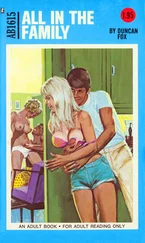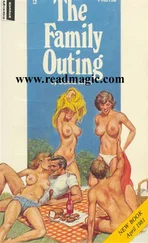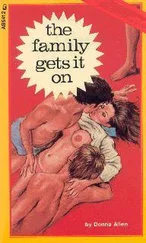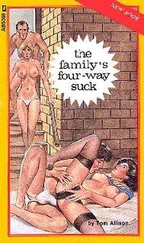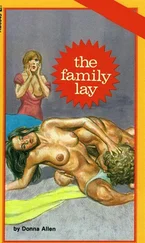The first time I spoke to Sarah, she said an interesting thing without realizing it. I asked her if she could think of anything in her and your childhood that might have turned you against her, or against Martin and Denise, and she couldn’t think of anything. She described your family life as “building-society-advert dull.” She said the most dramatic thing to happen was when she came down with what appeared to be some sort of respiratory illness, which later turned out to be an allergy: to the family dog.
I thought nothing of it at the time. It was only afterward that I put the pieces together. What would happen, I asked myself, if a child were allergic to the family pet? It’s not the kind of allergy that’s curable, and one can hardly evict the child from the family home. I also can’t imagine that many families would force a child with such an allergy to continue to live with the dog in question.
The dog would obviously have to go. Where? To be put down? Or would a new home be found for it? In either scenario, how would the other child feel, the older of the two sisters, who wasn’t allergic to dogs but who was nevertheless forced to say goodbye to her beloved pet?
I think she might blame her younger sister, while simultaneously knowing it wasn’t her fault. I think she might fabricate a life story to substitute for her real one, in which her little sister was a cold-hearted killer.
But here’s the interesting part: instead of two sisters in the fictional biography, there are three. Why?
I have a theory. You can tell me if I’m right.
After Perrine’s murder, Lisette argues in favor of doing the right thing and telling the police the truth. She is shocked when Allisande suggests that perhaps they ought to kill Perrine. Even someone as awful as Perrine doesn’t deserve to be murdered, Lisette believes. Allisande, meanwhile, would rather protect Perrine’s killer and doesn’t seem to give a toss about securing justice for her dead sister. Allisande ends up threatening Lisette’s life more than once. And—though you might not include this detail in your version of the story, Anne—Lisette also goes on to threaten Allisande’s life in return—by which I mean that you, Professor Anne Donbavand, plague me, Justine Merrison, with anonymous phone calls because you’ve decided I’m “Sandie” and we’re sisters, and we’re so at odds over the murder of Perrine that our once unbreakable bond is now in tatters. We are plotting one another’s downfall. Well, you’ll be glad to hear that I agree with that last part at least: we
are
plotting each other’s downfall, but under our own names. It seems we don’t need to be called Lisette and Allisande Ingrey in order to do battle.
I think you created Lisette and Allisande to represent two sides of you that were, and still are, at war: the one that hated your sister Sarah and wished her dead because if it weren’t for her, the dog could have stayed, and the one that knew Sarah wasn’t to blame and that she couldn’t help having an allergy.
Was that where your hatred of your family started, with the loss of the pet you adored? Your dog was part of the family, and when your parents said he had to be given away I can imagine you thinking, “They pretend that we’re a loving family, but what kind of loving family banishes its most defenseless member when he’s done nothing wrong?” Maybe you thought that if you had been the one with the allergy, you’d have endured the runny nose and weepy eyes without complaint.
Does all this sound like the wildest of guesses? Did you notice that in the paragraph above this one, I referred to your dog as “he”? I began with guesswork and deduction, but as soon as I started to suspect what I now know to be true, I contacted your sister Sarah again and asked her for more details about the dog.
So now I know he was male. I also know his name, and what happened to him after he left the Offord family home. Happily, he was not put to sleep. He went to live with another family, didn’t he? The Dodds.
His name was Malachy. He was a Sealyham terrier.
When you told Stephen, Fleur and George your elaborate fake life story, you missed out a crucial detail, didn’t you? You didn’t tell them that Malachy—the Malachy who was murdered by Perrine—was a dog. Why not? I know George doesn’t know, because if he did, Ellen would know too, and she doesn’t. She assumed Malachy was a boy, as I did for a long time.
I know that pets are forbidden in your house. Lachlan Fisher from Beaconwood told me Fleur wanted a cat and came to school crying one day because she’d been told she couldn’t have one.
You lost a pet you loved, and now you can’t bear to be around animals.
How did you feel when you attached the medallion with the threatening inscription to my dog’s collar? Was that hard to do? You couldn’t miss the opportunity, though, could you? You knew I’d panic at the thought of anything happening to my puppy because you’d experienced it as a child—wouldn’t I do anything to keep him safe, including move far away from Devon and take my daughter away from your son, leaving him wholly in your clutches?
Did it make you feel better, scaring me in the same way that you were scared as a child? Did you feel powerful at the moment when you hooked the silver tag onto the metal ring?
I’m surprised Stephen and your children haven’t yet guessed that Malachy Dodd was a dog. They must have heard the Ingrey story countless times. Frankly, I’m surprised
I
didn’t cotton on much sooner. There were so many clues, but I only realized when I was inside your house, Anne. I found myself looking at a bedroom window and noticing how low off the ground it was compared to the windows in my house. That’s when I knew there was something wrong with what I’d read about Malachy Dodd’s murder.
I remembered the day I’d stood in Ellen’s bedroom and had a sense of something nagging at the back of my mind, something I couldn’t grasp hold of—an element of a half-formed thought that jarred. It had been no more than a tiny flicker across my brain, too quick for me to pin down.
Suddenly, sitting on your bed, Anne, and looking out through the window, I knew exactly what it was that had bothered me that day in Ellen’s bedroom. Our new puppy was with us at the time—he was so little and helpless, and Ellen has a huge sash window in her room. I think my subconscious put those two things together, and in your bedroom—a different room, as I stared at a different window—it finally clicked. I knew what was wrong with the Malachy Dodd death story: it was the detail about it being impossible for Malachy to have fallen from the window accidentally because his center of gravity was too low. In other words, he was too short to fall out by mistake. But in which case, how could Perrine have been tall enough to eject him? Was there that much of a difference between their heights? The impression I had—admittedly, I might have been wrong—was of two children of roughly the same age.
A little later, after examining the story in more detail, I discovered that my suspicions were spot-on: Malachy was thirteen at the time of his murder, and Perrine was the same age. Yet she was tall enough, and with a sufficiently high center of gravity, not to
throw
Malachy or
push
him out of the very same window that he was too short to fall out of, but to
drop
him out?
I don’t think it’s a coincidence that the word “drop” was used in the version of the story that reached me.
If Perrine and Malachy were both thirteen-year-old human teenagers, there would not have been such a difference in their heights that one could have dropped the other out of a window.
Читать дальше


